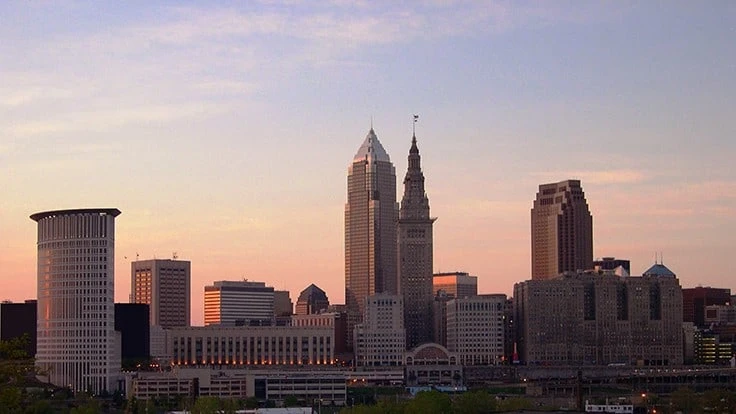
Photo provided by Dreamstime.
Cleveland’s city government has issued a notice acknowledging that its inability to negotiate a new contract means residential materials collected for recycling are now largely heading to landfills.
An April 29 statement from Mayor Frank G. Jackson reads in part, “Residential recycling is collected by employees from our Department of Public Works and those materials are taken to our Ridge Road Transfer Station before being hauled away by a third party agency for processing. Our contract for handling those recycled materials expired on April 1, 2020.”
The prior contract had been with Dover, Ohio-based Kimble Cos.
The mayor says the city twice sought new bids for the processing step. “The first time, no companies bid to take our recycled materials,” writes Jackson. “The second time we attempted to secure a new contract for these services, we received one bid. This bid would have charged the City of Cleveland tonnage costs that were well above market prices – potentially increasing our program costs by $6 million annually.”
Media reports emerged in April in Cleveland that items placed in residential recycling bins in the city were not in fact being recycled, with one TV station commenting, “We’ve found, in Cleveland, separating your bottles, cans and plastic has become a complete waste of your time.”
The station, WJW-TV in Cleveland, says its camera crews and tracking devices it placed found that “every last bit collected [for recycling] by city crews gets dumped in with regular trash by those crews.”
Mayor Jackson cites market conditions and a staggering rate of nonrecyclable items placed in bins as factors in the city recycling program’s woes.
“Unbudgeted, increased costs can be attributed to several factors,” writes Jackson. “First, fundamental changes in the global market for recycled materials [have been dramatic] since our citywide program was launched. Second, the company that bid on our contract had higher than anticipated transportation costs dues to the fact that materials would be hauled to Southwest Ohio. Finally, our rate of contamination in our materials is higher than we would like to see – about 68 percent of recycled materials are contaminated and have to be sent to a regular landfill – which increases the price we would have to pay.”
Jackson says the city has “selected a consultant to evaluate the entirety of how we address our local waste stream–including regular solid waste and recycling. As a part of this effort we have tasked this consultant with identifying what makes sense based on our local context, what is consistent with our commitment to environmental sustainability, and what is financially responsible. We expect this work will take a few months to complete, and during this process we intend to have opportunities for public input.”
A November 2019 ordinance passed by Cleveland City Council noted the end of the Kimble Cos. contract was looming, and it authorized the city to spend up to $165,000 to “employ by contract one or more consultants to provide professional services necessary to assess the operations and services for residential solid waste and recycling services.” It is unclear whether any such consultants have yet been hired.
In the meantime, the city is maintaining two drop-off sites for recyclables, one on Cleveland’s east side and the other on the west side.
Latest from Recycling Today
- BMW Group, Encory launch 'direct recycling’ of batteries
- Loom Carbon, RTI International partner to scale textile recycling technology
- Goodwill Industries of West Michigan, American Glass Mosaics partner to divert glass from landfill
- CARI forms federal advocacy partnership
- Monthly packaging papers shipments down in November
- STEEL Act aims to enhance trade enforcement to prevent dumping of steel in the US
- San Francisco schools introduce compostable lunch trays
- Aduro graduates from Shell GameChanger program





